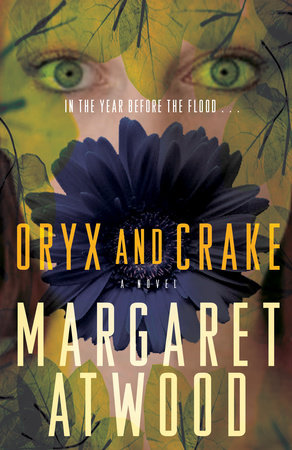
Human history is full of examples of our desire to be perfect, to create, to enjoy, to exploit what we believe is perfection. In the “Western” arts, this is a well-known leitmotif: from the statues of Greek gods to fictional depictions of beauty, from Bach’s music to Leonardo Da Vinci’s paintings. Of course, morality, religion, societal mores, human relations all enter into the discussion of perfection and beauty. Margaret Atwood’s novel Oryx and Crake (Vintage, 2009, pp. 389) adds to these considerations also feelings, especially the feeling of pity, the pity that pervades the reader for the protagonist, Snowman (Jimmy).
As in most speculative fiction, this novel, too, hinges on the events that precede and follow an apocalyptic event. The life of the characters in the pre-cataclysmic event is already far from perfect: specifically, the protagonist in his youth is basically a lonely boy looking for some kind of affection from his parents whose (pre-)occupations do not include him. Later on, he is enrolls in less prestigious art school for those young people who do not cut it in the sciences. Since he is “good with words”, he finds a job as an advertising copy writer. His friendship with Crake goes back to their youth, when they as little boys watch porn movies, play chess and computer games, and generally shun the rest of the children around them. This friendship brings him a more remunerative job, as Crake is the mind behind a very special project. This project aims to create a different (more perfect) human beings, starting with reorganizing the prepared embryo cells, so parents can choose a being who does not get sick, who has perfect physique, who does not crave sex, who is a vegetarian, etc. The private company already houses a group of the new perfect beings (physically beautiful) who are intellectually not ready to fend for themselves. So they have a teacher, Oryx, a woman who is the image of love for Snowman/Jimmy, but who is also loved by Crake. To prepare the possible embryos, a new sex pill is created which is tested all over the world without approval of any agency (in fact, there is no mention of any government or regulating agency in the book). This pill turns out to be the spark of the apocalypse, as it makes the users bleed to death. In the aftermath of a general almost complete excruciatingly painful human extinction, Jimmy takes over the care of the group of the perfect but ignorant human beings. This is the nutshell of the novel, as usual, it is impossible to do justice in this short paragraph to the complexities of it.
Although there is the usual note saying that the book is a work of fiction, to remind the reader that this may not be completely true, Atwood begins her narration by quoting from Jonathan Swift’s Gulliver’s Travels. This quote ends by expressing the idea that “my principal design was to inform you, and not to amuse you”. In other words, by creating a fictional world, Atwood intends to inform us of what exactly is going on around us in this present point of history. My mention of pity at the beginning of this review points to the fact that each element of the novel, each move that Snowman/Jimmy makes, has equivalents in our present. And pity stems from the fact that neither we nor the protagonist can really do anything about the things that we know are done wrong. Jimmy/Snowman cannot fight against the system that separates people into have and have-nots (both economically and intellectually) – does this sound familiar? In the novel, private companies have all the power to do as they please – does this sound familiar? Even individuals act totally unscrupulously in the novel – does this sound familiar? especially as regards children bought from poor families and used in child porn films. What is there for the protagonist to do? How can he act against forces that are so entrenched in his environment but act within the confines of his world and try to survive by himself? The readers can only feel pity for him, as they also feel pity for themselves, for the pitiful world we live in, for all the injustices that are perpetrated by individuals and companies. The world has recently been through the Covid pandemic – what have we learned from it? Now there are wars, military conflicts, hate is compounded on top of hate ad infinitum. Atwood’s novel ends with the possibility that Snowman/Jimmy is not the only “normal” human alive in his world. Should we think of that possibility for us? And what happens when perfection – our version of what it should be – does not pan out to be really perfect? Must perfection and pity coexist?
